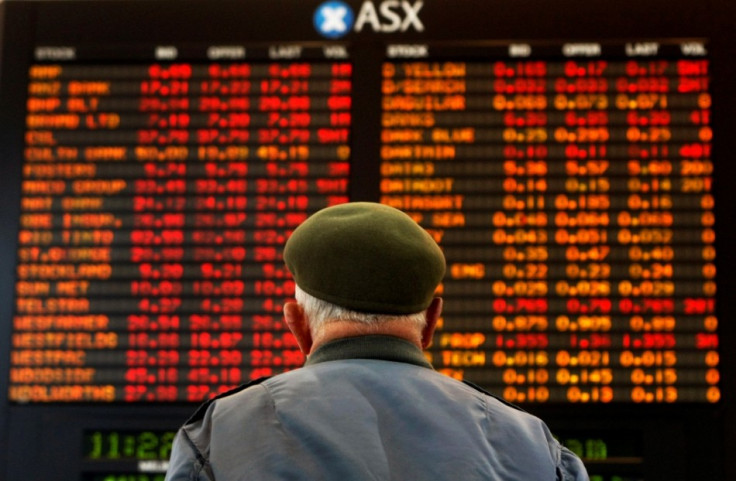Asian markets outside mainland China drop on oil fears
Japan's Nikkei and India's Sensex down 3%

Asian markets outside mainland China traded lower on 6 January, and followed a downbeat handover from Wall Street, pulled down by concerns surrounding falling crude oil prices.
In Tokyo, both declining oil prices and a stronger yen weighed on the benchmark Nikkei 225 share average, which lost over 3%, its largest fall in almost 10 months.
In Shanghai, the benchmark Shanghai Composite index drew support from upbeat services PMI data and from surging train-maker's stocks.
In Mumbai, the benchmark S&P BSE Sensex share average was trading some 3% lower and was headed towards its biggest daily loss since the rupee crisis of 2013.
Market movements
The Japanese Nikkei finished 3.02%, or 525.52 points, lower at 16,883.19.
Australia's S&P/ASX finished 1.57%, or 85.50 points, lower at 5,364.80.
The Shanghai Composite finished 0.03%, or 0.93 points, higher at 3,351.45
Hong Kong's Hang Seng finished 0.99%, or 235.91 points, lower at 23,485.41.
South Korea's Kospi finished 0.74%, or 41.22 points, lower at 5,561.38.
And India's Sensex was trading 3.03%, or 842.72 points, lower to 26,999.60 at 1526 IST.
Company stocks
In Tokyo, Impex, Japan's largest oil & gas explorer dropped 5.8%.
Fast Retailing lost 1.8%. Automaker Toyota and camera-maker Canon lost nearly 3% each.
PlayStation-maker Sony shed 1.2%
In Sydney, Oil Search and Santos tanked 8% each. BHP Billiton dropped 4.7%.
Macquarie Group lost 2.3% while Australia and New Zealand Banking Group (ANZ) and National Australia Bank lost 1.2% and 0.8% respectively.
In Shanghai, property developer Vanke lost some 4%.
China Oilfield Services and Sinopec shed 3.2% and 2% respectively.
But cheaper oil boosted airline stocks. Air China and China Southern added 4.3% and 2% respectively.
Stocks of train makers CSR and China CNR gained 10% for the second straight day.
In Seoul, S-Oil and SK Innovation lost 6.5% and 2.8% respectively.
Samsung Electronics lost 3.2% ahead of the firm's fourth-quarter earnings guidance due this week.
Rival LG Electronics gained some 3% on the launch of a new smartphone.
Shares in Hyundai Motor and Kia Motors finished 2.08% and 1.54% respectively after the Hyundai Motor Group announced plans to spend around $73bn over four years, on expanding capacity, developing new vehicles and building a new headquarters in Seoul.
Analysts take
Danske Bank said in a note: "Oil prices will continue to attract attention as the relentless decline continues. While prices may fall further in the short term, we look for a recovery in 2015."
Bill Adams, senior international economist for PNC Financial Services, said in a note: "The HSBC China services PMI was 53.4 in December, up a notch from November's 53.0. Its increase parallels the slightly smaller rise in the CFLP non-manufacturing PMI in December, which rose to 54.1 from 53.9 in November.
"December's improvement in service sector sentiment suggests Chinese policymakers might not need to rush into additional stimulus measures in early 2015. December is probably too early to see an impact from November's interest rate cut - a $10tn economy doesn't turn on a dime - so the December PMI's move up suggests that 2014's 'neutral' policy environment was sufficient to hold growth more or less on pace, even before the late 2014 rate cut."
© Copyright IBTimes 2024. All rights reserved.







